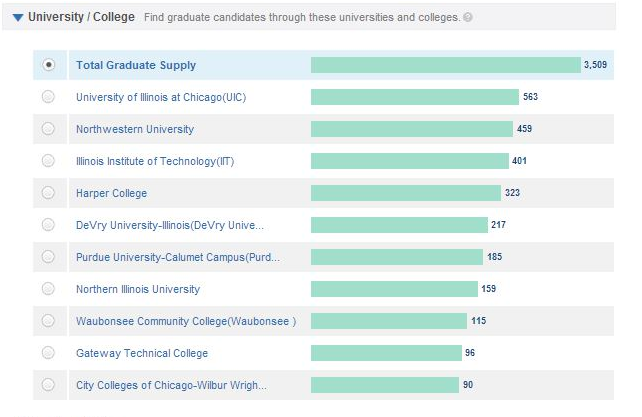If nothing else, SAP’s acquisition of SuccessFactors put Oracle under serious pressure.
In order to stay relevant in a highly-competitive market, Oracle would need to respond with equal or greater magnitude. Now, it has.
The ERP giant announced this week that it was acquiring Dublin, Calif.-based Taleo, a leading provider of talent management solutions and SuccessFactors’ top competitor. The acquisition, for $46 share or $1.9 billion, highlights two major trends in the HR technology market.
The first is traditional ERP’s transforming into cloud providers – offering greater integration, access to data and user experience. According to Aberdeen’s ERP and Cloud SaaS, 39 percent of “High Growth” organizations planned to invest in cloud computing in 2012. ERP’s clearly recognize this opportunity.
The second trend signifies the end of the talent management technology market as we know it. With the two largest talent management providers exiting the space, what is the future of the talent management suite? How will other best of breed providers respond?
4 things to consider
With a myriad of questions left unanswered, below are some of the key highlights to consider when comparing SAP/SuccessFactors with Oracle/Taleo:
- Heritage: While SuccessFactors has its heritage on the post-hire side (performance management), Taleo started as a talent acquisition system provider (formerly RecruitSoft) dwarfing other providers in market share with over 5,000 recruiting customers. Both providers were actively expanding their suite of products into areas such as learning and compensation (mostly through acquisition of providers such as Plateau and Learn.com) but continued to win large talent management deals due to the strength of their respective heritage.
- Leadership: While Lars Dalgaard, the founder of SuccessFactors, is closely aligned with the vision of the company, Michael Gregoire joined Taleo in 2005 following several CEOs. Since Taleo is not Gregoire’s “baby,” the decision to sell is business — influenced by pressure to compete with SAP and much less about the future of the technology or the vision of the product suite. Dalgaard is staying on to run SAP’s cloud business. Little discussion around Gregoire’s future at Oracle exists today.
- Cloud: Both providers have boasted their cloud solutions as a key driver influencing these acquisitions. This makes sense since both SAP and Oracle have been actively trying to gain footing in the cloud environment. Unlike SuccessFactors, Taleo is arguably not a true SaaS provider. Questions exist around lack of multi-tenancy and open architecture. This acquisition is unlikely to make Oracle the “cloud powerhouse” that SAP is aspiring to be.
- Integration: Integration is the more perplexing area of these acquisitions on several levels- product, platform, and leadership. Several of the integration concerns for SAP’s acquisition of SuccessFactors include integration with Business By Design and existing SAP’s HCM offering. Similar concerns exist for Oracle and Taleo. How will Taleo be integrated with Oracle’s Fusion offering which currently lacks recruitment? How will Oracle EBS and PeopleSoft products influence this integration?
Furthermore, what about the integration of talent? Both Taleo and SuccessFactors hired the best of the best in product development, sales and marketing.
We are already seeing attrition from talented individuals leaving these organizations leaving to pursue new opportunities. How will SAP and Oracle retain and transition these leadership teams?
